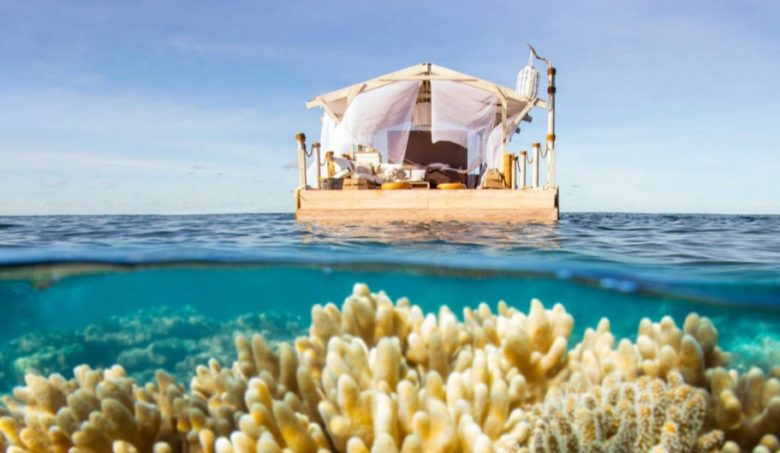
Airbnb Announce Floating Apartment In The Middle Of The Great Barrier Reef
Fancy sleeping with the fishes? No, we don’t mean being brutally murdered and dumped off the side of a boat. In fact, what we’re referring to is far more pleasant.
In a shameless stunt to promote Disney Pixar’s Finding Dory, Airbnb have this afternoon revealed a flippin’ fin-omenal (sorry, couldn’t help myself) new destination – a floating apartment surrounded by one of the largest natural wonders on the planet, the Great Barrier Reef.

Airbnb’s new Great Barrier Reef Listing – Supplied
Oh yeah – it doesn’t stop there – once guests have found their sea-legs, world-renowned chef Neil Perry will also be on hand for the experience, preparing meals from sustainably-sourced local seafood and produce.
Approximate Location:
Guests at the accommodation will feel the pull of the unknown when they peek over the edge of the coral shelf and take in their neighbourhood, home to not just Dory, but to 100 species of jellyfish, 3,000 varieties of molluscs, millions of fish, 133 varieties of sharks, rays and more than 30 species of whales and dolphins.
With its current rate of depletion, this might just be your last chance to catch some of these creatures before they’re gone for good.

Airbnb’s new Great Barrier Reef Listing – Supplied
But the stunt is far more than a promo tool. Airbnb are doing a whole heap of environmental initiatives to give some love to the natural wonder (while it’s ignored by Canberra).
Airbnb Australian Country Manager Sam McDonagh said:
“The opportunity to live at one of the most spectacular places on earth, even if just for a night, is not just about experiencing the unrivalled beauty of the location, it’s about understanding how humans can better help and support this special environment.”
“Airbnb will plant mangroves, salt marsh and wetland plants for every guest visiting the region for the rest of the year. These trees will reduce carbon and improve water quality going out to the seas and reef,” said McDonagh.
Airbnb will also contribute to an ongoing tiger shark tagging project run by the Great Barrier Reef Foundation.“Tiger sharks are nearing threatened status so understanding how these animals use the ocean is a critical step toward effective conservation of the species,” said McDonagh.
You can read more about their efforts here.
